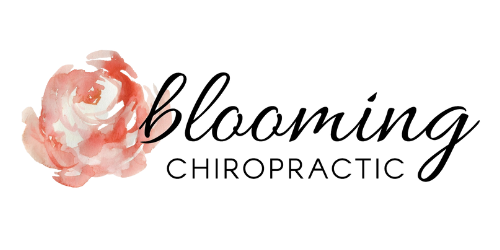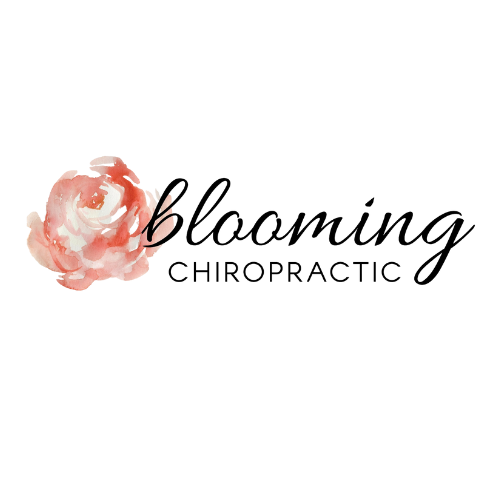What is round ligament pain? How does pregnancy chiropractic care in Costa Mesa, CA help relieve round ligament pain naturally?
If you’re pregnant or have been pregnant, you’ve probably heard of or experienced round ligament pain. This discomfort is very common during pregnancy, especially in the second trimester, and can cause sharp, stabbing, or cramp-like sensations in the lower abdomen. Understanding round ligament pain and how to manage it can make your pregnancy much more comfortable.
What Are the Round Ligaments?
I like to describe the round ligaments as elastic bands that extend from the pubic symphysis (the bony part in the front of your pelvis) to the uterus. These ligaments are two cord-like structures that support the uterus and connect it to the groin. As your uterus expands and your baby grows, these ligaments stretch, just like an elastic band, which can lead to discomfort or pain.
What Does Round Ligament Pain Feel Like?
Round ligament pain is often described as a sharp, stabbing, or pulling sensation in the lower abdomen or pelvis. It can be triggered by movements such as:
✔ Coughing or sneezing
✔ Laughing
✔ Changing positions suddenly
✔ Getting out of bed too quickly
✔ Walking or exercising
The pain varies in intensity from mild discomfort to severe, sudden pain, sometimes referred to as lightning crotch. While it is common in the second and third trimesters, some women may feel it earlier or experience it more intensely if carrying multiples or if there is pelvic misalignment.
How to Relieve Round Ligament Pain?
The good news is that there are effective ways to manage round ligament pain so you can stay comfortable during pregnancy. Here’s what you can do:
1. Pregnancy Chiropractic Care in Costa Mesa, CA
Webster Certified pregnancy Chiropractor in Costa Mesa, CA working on this mom’s round ligament to relieve tension using the Webster Technique.
Seeing a Webster-certified pregnancy chiropractor in Costa Mesa, CA can provide significant relief from round ligament pain. Here’s how:
✔ Pelvic Alignment: Gentle adjustments help restore balance to the pelvis, reducing tension in the round ligaments and supporting a more comfortable pregnancy.
✔ Soft Tissue Techniques: Prenatal chiropractors use gentle massage and ligament release techniques to ease tightness and discomfort.
✔ Nervous System Support: Chiropractic adjustments optimize nerve function, helping your body adapt better to pregnancy changes.
✔ Better Baby Positioning: Proper pelvic alignment may help encourage an optimal fetal position, which can reduce tension on the ligaments.
At Blooming Chiropractic in Costa Mesa, CA, we specialize in pregnancy chiropractic care and have helped countless moms in Newport Beach, Huntington Beach, and surrounding Orange County areas feel their best during pregnancy.
2. Change Positions Slowly
Avoid sudden movements that can stretch the round ligaments abruptly. When getting out of bed, try this method:
✔ Place a pillow between your knees
✔ Roll onto your side
✔ Use your elbow and upper body to push yourself up
✔ Bring your legs down slowly
This prevents excess strain on the ligaments and reduces pain.
3. Wear Supportive Maternity Belts
A pregnancy support belt or belly band provides gentle abdominal support, helping to relieve pressure on the round ligaments. This is especially helpful if you’re on your feet for long periods or have an active lifestyle.
4. Massage and Heat Therapy
✔ Gentle massage can relax tight muscles and improve circulation to the ligaments.
✔ Applying a heating pad on a low setting for short durations can ease pain and tension. (Be sure it’s not too hot!)
5. Epsom Salt Baths for Relaxation
A warm Epsom salt bath can work wonders for relaxing sore muscles and soothing ligament pain. Be sure the water is warm, not hot, as overheating is not recommended during pregnancy.
6. Prenatal Yoga and Gentle Stretching
Certain prenatal yoga poses and gentle stretching can help relieve tension in the ligaments. Try:
✔ Child’s Pose: Stretches the lower back and opens the hips.
✔ Cat-Cow Stretch: Improves spinal flexibility and relieves pelvic tension.
✔ Pelvic Tilts: Helps strengthen core muscles and support the uterus.
A pregnancy chiropractor in Costa Mesa, CA can recommend safe and effective stretches tailored to your needs.
7. Stay Hydrated and Eat Well
✔ Drink plenty of water to keep muscles and ligaments hydrated. Adding electrolytes can further support hydration and muscle function.
✔ Eat a balanced diet rich in magnesium and calcium, which help prevent muscle cramps and support ligament health.
When to Seek Help for Round Ligament Pain?
While round ligament pain is normal, there are times when it’s important to seek professional care. Contact your healthcare provider if you experience:
✔ Severe, persistent pain that doesn’t improve
✔ Pain accompanied by fever, chills, or dizziness
✔ Difficulty walking or standing due to pain
✔ Contractions or pressure in your pelvis
Find Pregnancy Chiropractic Care in Costa Mesa, CA
If you’re experiencing round ligament pain, pelvic discomfort, or other pregnancy-related aches, Blooming Chiropractic in Costa Mesa, CA is here to help! We provide gentle, effective pregnancy chiropractic care to support your comfort and well-being throughout pregnancy.
🌿 Serving moms in Costa Mesa, Newport Beach, Huntington Beach, and all of Orange County!
📞 Call or text us at 657-845-1669 to book your appointment today!
💻 Schedule online through our website!




